Are Your Elderly Loved Ones Drinking Enough?
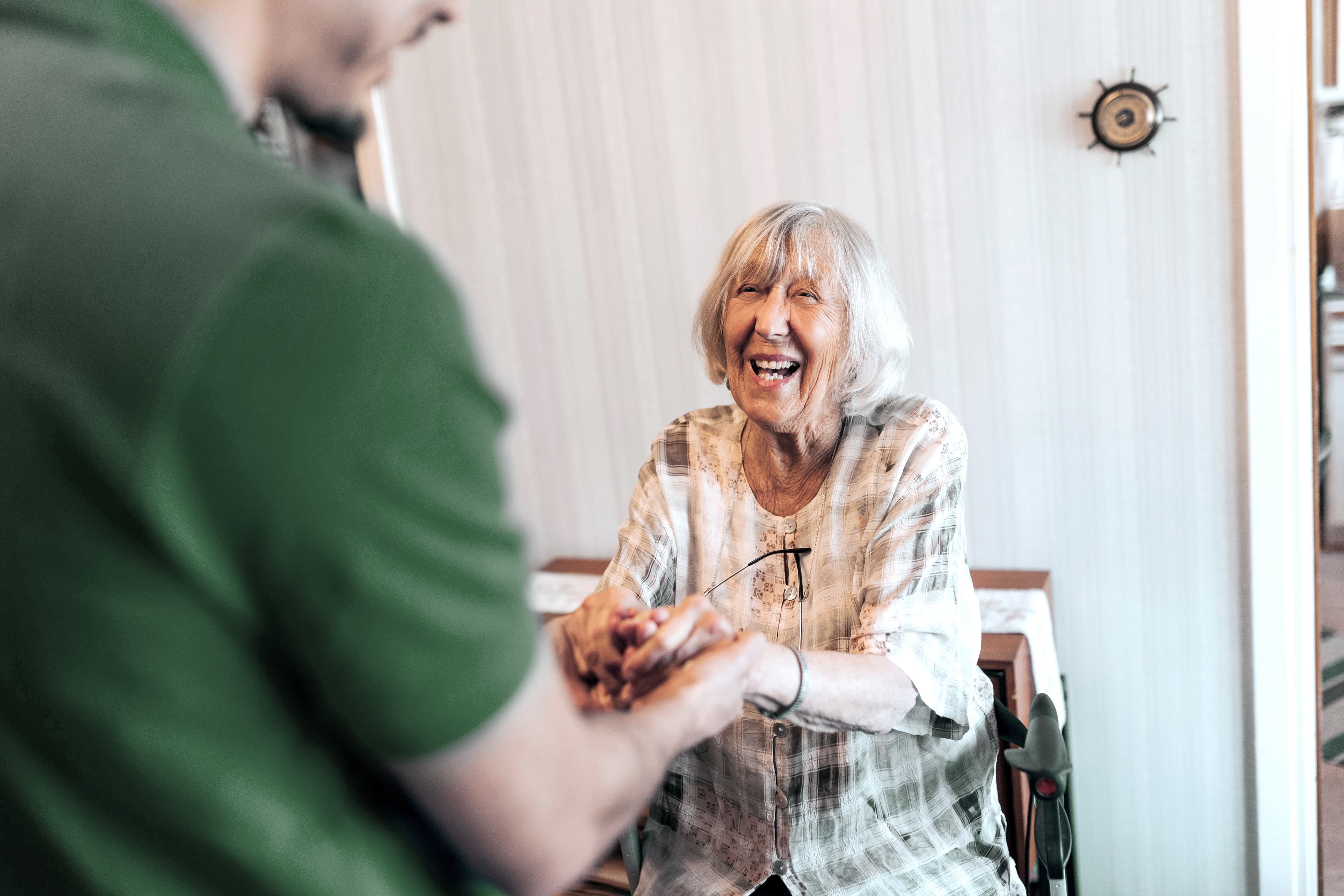
Staying Hydrated in Chingford Matters More Than You Might Think
As July brings warmer temperatures to Chingford, staying hydrated becomes more important than ever, especially for older adults and those receiving care at home. So, are your elderly loved ones drinking enough? Dehydration can happen quickly and is often overlooked, but it’s important to stay aware. At Home Instead Chingford, we know just how crucial it is to help older people stay safe and well during the summer months. From simple strategies like keeping drinks nearby and offering fruity ice lollies to understanding which drinks and foods to avoid such as caffeine, fizzy pop and salty snacks, we’re here to support hydration in a way that is caring, practical and tailored to individual needs.
In this blog, we’ll explore why older adults are more at risk of dehydration, how to recognise early warning signs, and what foods and fluids can help keep hydration levels up during the summer. Whether you’re caring for a loved one or simply want to know more, this guide is here to help.

Why Older Adults Are More Likely to Become Dehydrated
As we age, our bodies become less efficient at managing fluid levels. Muscle tissue, which holds a lot of the body’s water, reduces over time, and the natural sense of thirst becomes weaker. This means many older people simply don’t feel thirsty, even when their body needs water.
Other common reasons hydration can be a challenge include:
- Mobility issues that make it difficult to fetch a drink.
- Memory loss or dementia, which can affect routine and awareness.
- Fear of incontinence, leading to drinking less to avoid needing the toilet.
- Medications, such as diuretics or some Parkinson’s and blood pressure treatments, which increase fluid loss or interfere with how the body regulates temperature.
According to the European Hydration Institute, people aged 85 to 99 are significantly more likely to need hospital care than those in their late 60s. That statistic underlines just how important this issue can become.
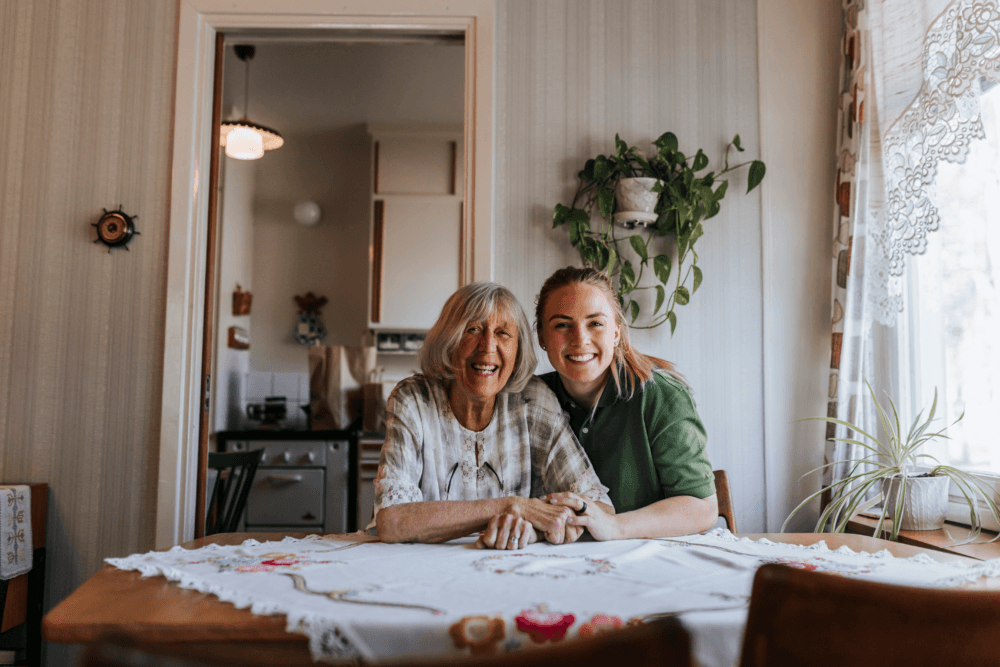
Common Causes and Triggers for Dehydration
Staying hydrated isn’t only about drinking water. Older people often face several barriers and health conditions that make dehydration more likely, including:
- Warm weather or heatwaves
- Fever, vomiting, or diarrhoea
- Sweating or being outside for too long
- Reduced kidney function
- Difficulty preparing drinks due to arthritis or frailty
- Lack of support from others in the home
Even a short spell of warm weather in Chingford can trigger dehydration in someone who’s already vulnerable, especially if they’re taking medication or managing a long-term condition.
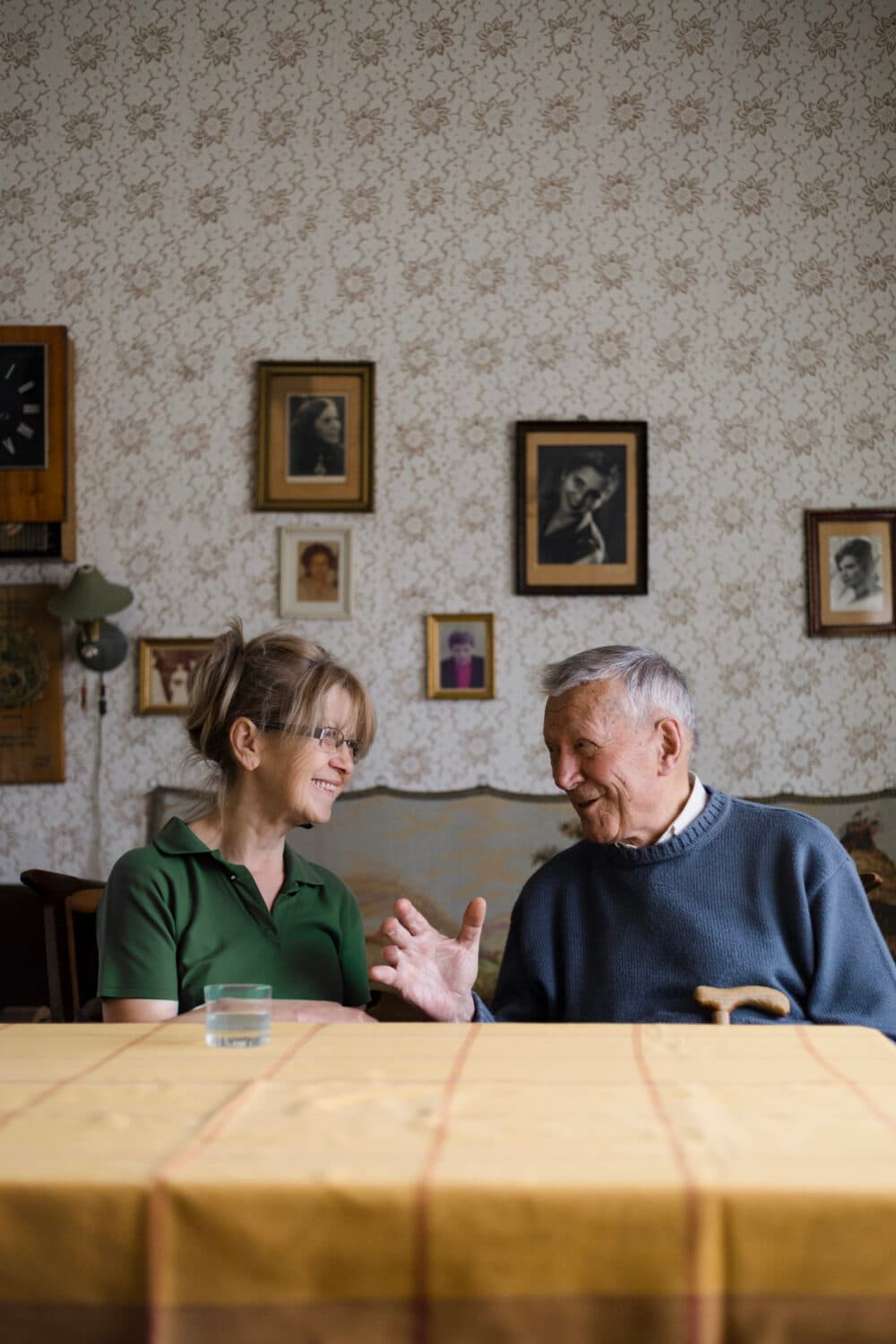
Early Signs of Dehydration to Watch For
It’s not always easy to spot the early stages of dehydration, as symptoms can overlap with other health issues or simply be mistaken for tiredness or confusion.
Look out for:
- Dry mouth or lips
- Headaches or dizziness
- Tiredness or fatigue
- Constipation
- Dark urine
- Muscle cramps
- Low mood or irritability
If dehydration progresses, more serious symptoms may appear, such as:
- Confusion or disorientation
- Rapid breathing or pulse
- Swollen stomach
- Fainting
- Low blood pressure
- Seizures
- High fever
If any of these severe symptoms appear, it’s important to seek urgent medical attention.
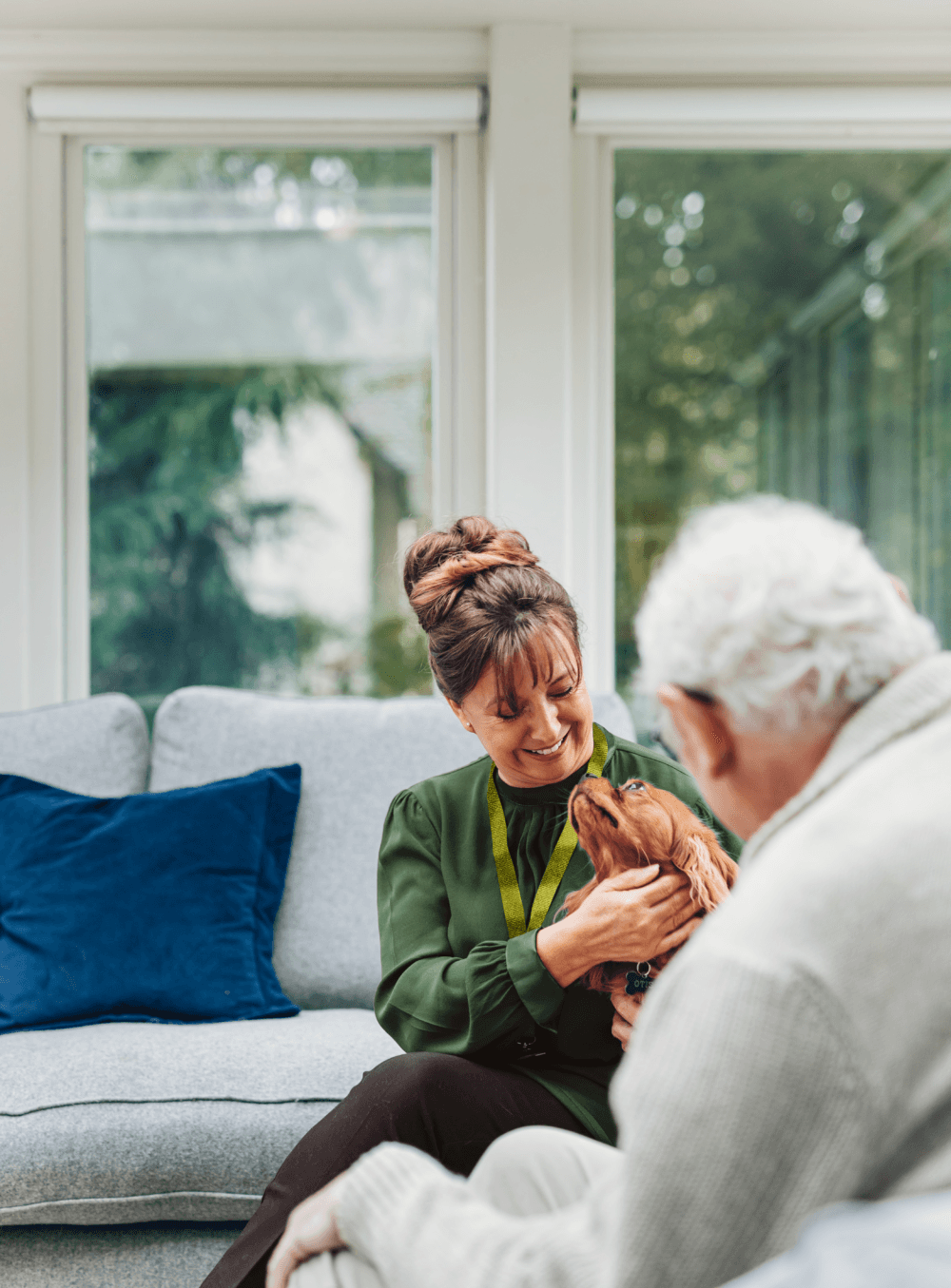
Best Ways for Older People to Stay Hydrated at Home
There are plenty of easy ways to help someone drink more without it feeling like a chore. Here are some simple, effective hydration strategies:
1. Keep Fluids Visible and Reachable
Place drinks within easy reach of favourite chairs, bedsides, and dining spots. Use refillable bottles, cups with straws, or lidded beakers if mobility or strength is a challenge. Encourage sipping throughout the day rather than large amounts all at once.
2. Make Drinks More Appealing
Plain water isn’t always the easiest option. Try:
- Sugar-free squash
- Herbal teas
- Cooled decaf tea or coffee
- Fruit-infused water (think lemon, cucumber, or mint)
- Homemade smoothies
Offer a drink with every meal and snack to build it into the daily routine.
3. Use Water-Rich Foods to Support Fluid Intake
Some older people find it easier to eat than drink. Include water-rich foods such as:
- Watermelon, strawberries, oranges, and peaches
- Cucumber, lettuce, celery, and tomatoes
- Yoghurt, jelly, soups, broths, smoothies, and ice lollies
Soups are particularly helpful in winter, and chilled fruit or jelly is excellent in summer.
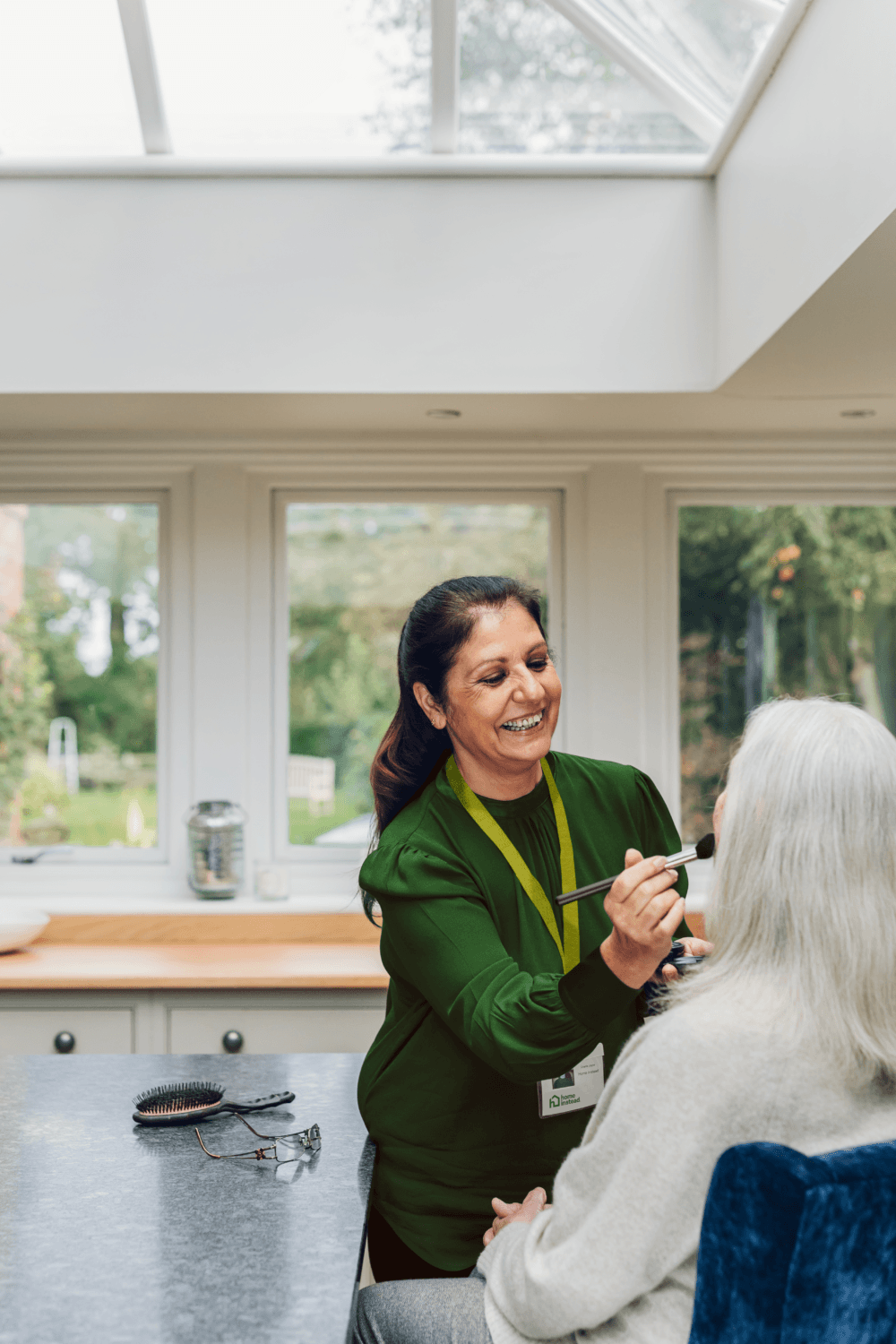
Drinks and Foods That Can Make Dehydration Worse
While keeping fluids up is the goal, some drinks and foods can have the opposite effect.
Try to avoid or reduce:
- Alcohol
- Fizzy, sugary drinks
- Caffeinated coffee and energy drinks
- Salty or heavily processed foods, which may increase thirst
People with high blood pressure or kidney problems should be especially cautious about hidden salt and sugar in their diet.
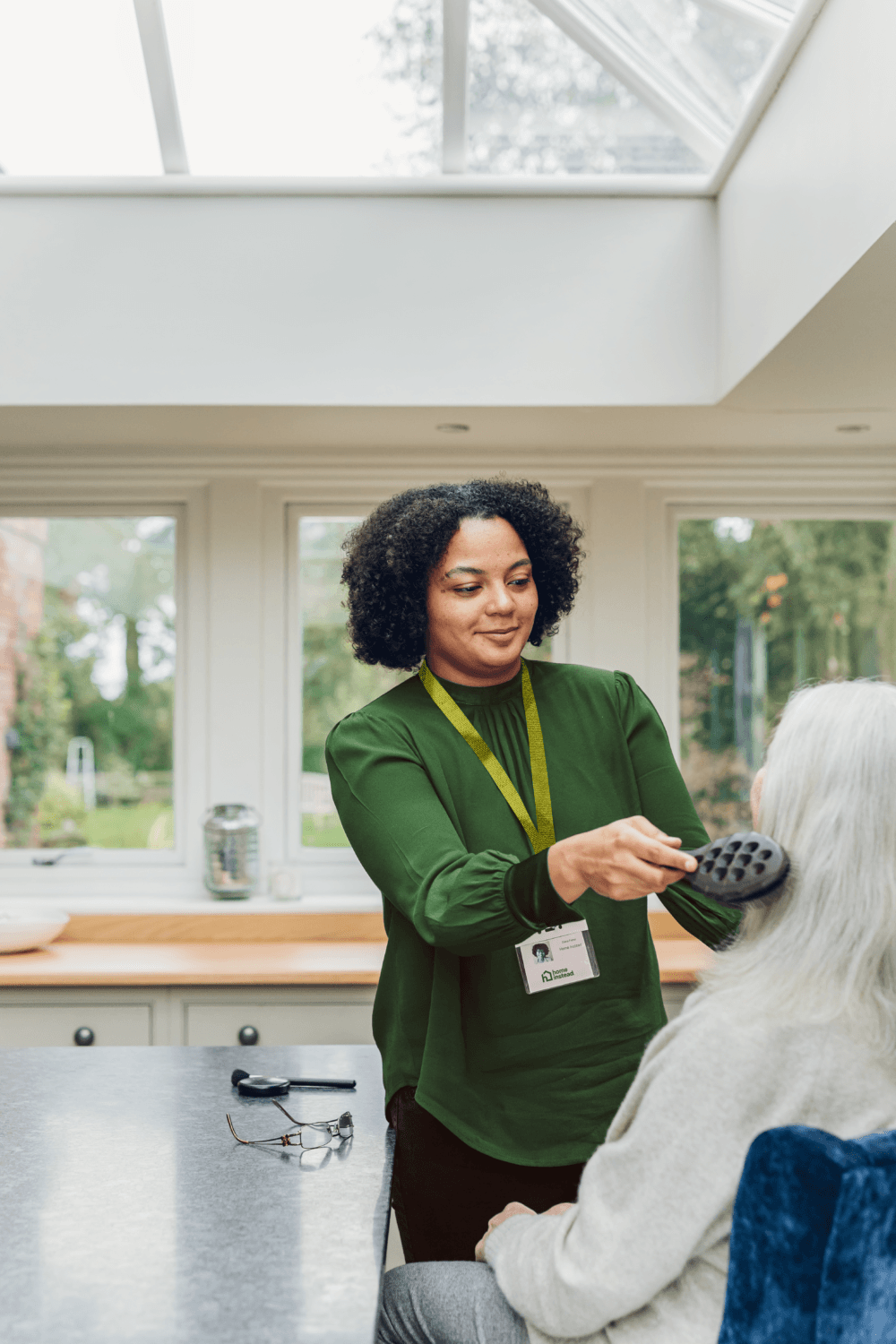
Medication, Heat, and Hydration: What You Should Know
Some medications increase the risk of dehydration, especially in warmer weather. These include:
- Diuretics (commonly used for heart conditions or high blood pressure)
- Certain antipsychotics
- Parkinson’s medications
- Blood pressure medications
These may change how the body manages temperature or increase fluid loss. Make sure medications are stored properly—never leave them on windowsills or in cars, and follow the storage advice on the packaging.
If in doubt, speak to a GP or pharmacist during hot spells to check if any adjustments are needed.
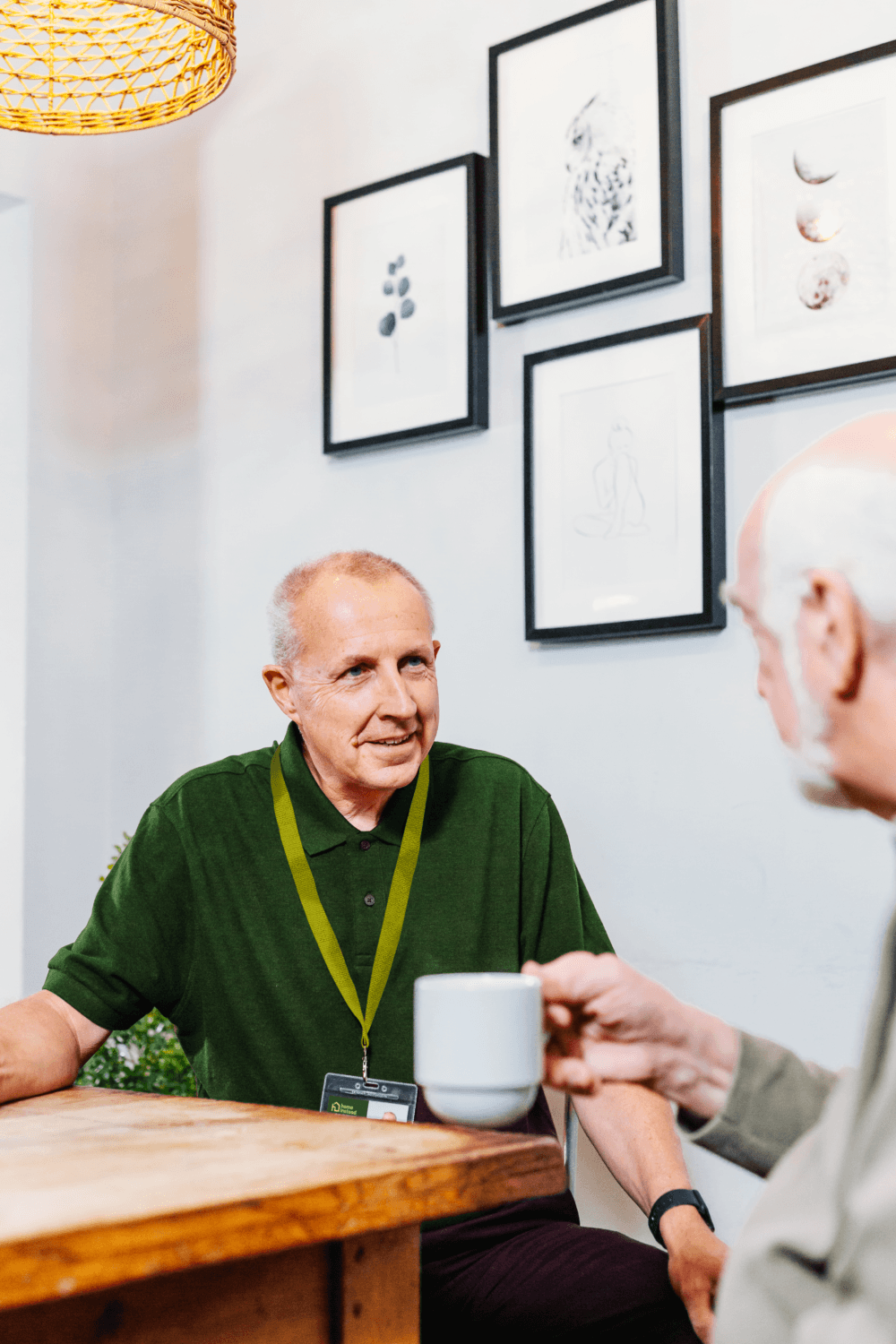
Helping Someone Stay Hydrated at Home in Chingford
At Home Instead Chingford, our Care Professionals are trained to help older adults stay hydrated without pressure or discomfort. Whether supporting someone with dementia, Parkinson’s, or simply helping them recover after hospital, we focus on small habits that make a big difference.
Our team can:
- Gently prompt regular drinks and monitor intake
- Prepare appealing, water-rich snacks and meals
- Provide help with toileting to reduce anxiety around accidents
- Adjust care plans during warmer weather or illness
- Support safe outings with hydration in mind
Every visit is tailored to the individual, and we’re proud to work alongside families to keep loved ones well at home.

Summer Safety and Community Support
In Chingford, initiatives like those at Ivy Grove, where care staff and local police teams collaborate on hydration education, show just how powerful community efforts can be. Events and drop-ins raise awareness and help ease any discomfort about asking for support.
At Home Instead Chingford, we believe that no one should feel like asking for help means losing independence. Accepting support, whether from a neighbour, a carer, or a friendly chat on the doorstep, is part of staying safe and healthy at home.

A Personal Approach to Every Care Need
If you’re caring for a loved one and worried about their fluid intake, we’re here to help. Hydration support is just one part of our home care service. We offer:
- Live-in and visiting care
- Dementia and memory care
- Recovery support following hospital stays
- Help with shopping, meal prep, and daily routines
Often, we can start care within just 24 hours. Our local team understands Chingford’s community and is always here to listen.

Final Thoughts
Hydration in later life is more than just a health tip, it’s part of living comfortably and with dignity. With the right support from family, community, and professionals like the team at Home Instead Chingford, drinking enough becomes second nature. Together, we can help older people stay safe, stay well, and enjoy the comfort of their own homes, whatever the weather.
Let’s keep the kettle (or the squash jug) topped up.
If you’d like to learn more about our care services, job opportunities, or how we can help your loved one thrive at home in Chingford, we’re ready when you are.

Areas We Serve
Chingford, Stoke Newington & the surrounding areas
E4 6, E4 7, E4 8, E4 9, N1 2, N15 3, N15 4, N15 5, N15 6, N16 0, N16 5, N16 6, N16 9, N17 0, N17 6, N17 7, N17 8, N17 9, N18 1, N18 2, N18 3, N22 5, N22 6, N22 8, N4 1, N4 2, N4 3, N4 4, N5 1, N5 2, N7 6, N7 7, N8 0, N8 9
Offices, 2nd & 3rd Floor, 35-37 Station Rd, London E4 7BJ, UK
0208 1142000